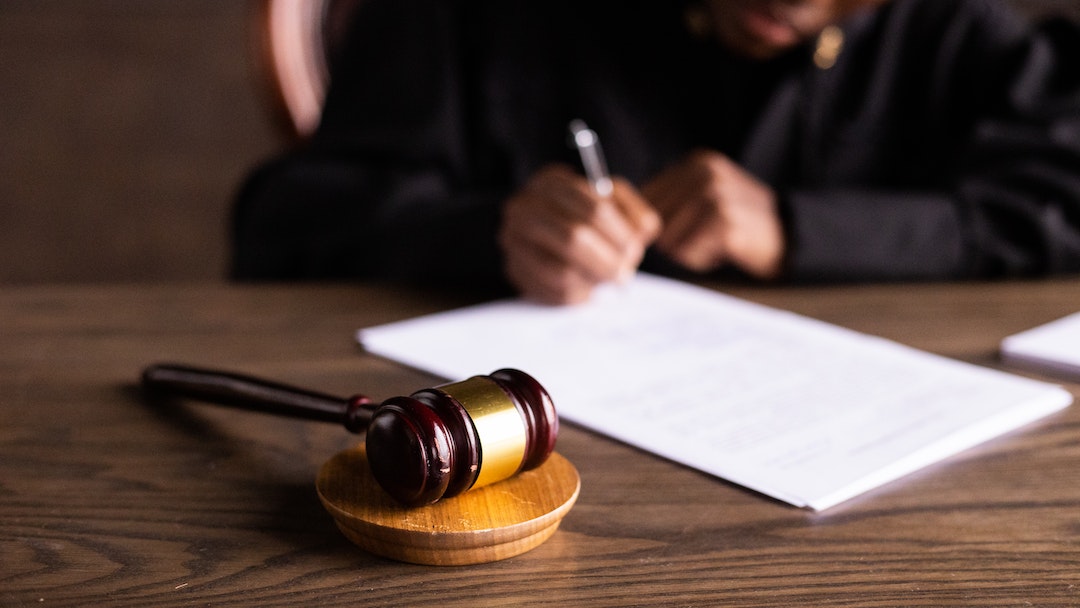Rule 501. Privilege; General Rule.
Privilege is governed by the common law, except as modified by statute or court
rule.
Have your rights been violated?
Have your driving priviledges been revoked?
Has your professional license been suspended?
Have you been charged with a crime?
Call our office to see if we can help
Komorn Law 248-357-2550
Understanding the Protection of Confidential Communications
Rule 501 of the Michigan Rules of Evidence (MRE) plays a crucial role in safeguarding confidential communications and upholding important relationships in legal proceedings. This article delves into the key aspects of Rule 501, drawing insights from the Michigan Rules of Evidence Handbook.
Main Principle: Common Law Governs Privilege Claims
The fundamental principle of Rule 501 states that claims of privilege in Michigan courts are primarily governed by the common law. This means that established legal precedents and principles, as interpreted by United States courts, serve as the primary source for determining whether information qualifies for protection under a privilege.
Exceptions to Common Law Rule
However, the rule recognizes three exceptions where common law may not be the sole authority for privilege:
- United States Constitution: Certain privileges, like the attorney-client privilege, find their foundation in the United States Constitution. These privileges take precedence over common law interpretations.
- Federal Statutes: Specific federal statutes, such as the Federal Rules of Evidence, may supersede common law rules of privilege in certain cases involving federal matters.
- Michigan Supreme Court Rules: The Michigan Supreme Court, through its rulemaking authority, can create or modify privilege rules that deviate from the common law.
Importance of Rule 501 in Practice
Rule 501 plays a critical role in ensuring fair and just legal proceedings by:
- Protecting sensitive communications: Privileges shield confidential information exchanged in certain relationships, like lawyer-client, doctor-patient, and priest-penitent, from disclosure in court. This fosters trust and encourages open communication in these vital relationships.
- Balancing competing interests: The rule balances the need for truth-finding in legal proceedings with the protection of legitimate interests, such as preserving confidentiality and encouraging free and open communication.
- Predictability and consistency: Relying on established common law principles for privilege provides predictability and consistency in legal proceedings across the state.
Further Resources for Understanding Rule 501
The Michigan Rules of Evidence Handbook offers in-depth analysis and commentary on Rule 501, including:
- Detailed explanations of the exceptions to the common law rule.
- Case studies and examples illustrating how courts apply Rule 501 in specific situations.
- References to relevant statutes, court rules, and legal scholarship for further research.
By understanding the principles and implications of Rule 501, legal professionals and individuals alike can navigate the complex world of privilege in Michigan courts with confidence.
Important:
This article provides a simplified overview of the Michigan Rules of Evidence for informational purposes only. It should not be interpreted as legal advice. When facing legal matters, always consult with a qualified attorney for professional guidance.
The Michigan Rules of Evidence are subject to change over time. Always consult the latest official version for accurate information.
Here is the link to the Michigan Rules of Evidence Handbook. Check the footer for the latest update.
Related Articles
Evidence in Michigan Courts: A Guide to Rules 401-411
Understanding the Foundation: A Summary of Michigan Rules of Evidence 401-411 The Michigan Rules of Evidence (MRE), specifically Rules 401-411, lay the groundwork for what evidence can be presented in court and how it might influence the outcome of a case. This...
Evidence in Michigan Courts: A Guide to Rules 301-302
Michigan Rules of Evidence: A Guide to Rules 301-302 Presumptions, those inferences drawn from established facts, play a crucial role in both civil and criminal cases in Michigan. However, their application is carefully regulated by the Michigan Rules of Evidence,...
Evidence in Michigan Courts: A Guide to Rules 201-202
Michigan Rules of Evidence: A Guide to Rules 201-202 Understanding the Michigan Rules of Evidence is crucial for anyone involved in legal proceedings within the state. This article focuses on two key rules: 201** (Judicial Notice of Adjudicative Facts)** and 202**...
Evidence in Michigan Courts: A Guide to Rules 101-106
Navigating the legal system can be daunting, especially when it comes to understanding the rules governing evidence. This article sheds light on the first six articles of the Michigan Rules of Evidence (MRE), providing a helpful summary for legal professionals,...
More Posts

When Can Police Take Your Dash Cam?
You work hard. Now get ready to work harder to prepare to give more.In Michigan, police can take your dashcam footage in specific situations, primarily when they believe it could serve as evidence in a criminal investigation. Michigan law permits officers to seize...

People who are going to need a Lawyer – November 12, 2024
People who are going to need a LawyerMan so drunk field sobriety tests were ‘too dangerous’ sentenced to life in prison for repeated DWI convictions‘Several terabytes’: Diddy prosecutors shed light on ‘voluminous’ discovery, including iCloud accounts and dozens of...

Cambridge Analytica data breach comes before court
Oral arguments in Facebook v. Amalgamated Bank will beginThe justices are set to review securities law as they hear arguments in a significant case linked to the 2015 data breach involving Cambridge Analytica and Facebook. The tech giant’s effort to fend off federal...

Search and Seizure – Consent or Plain view
The Fourth Amendment was established to protect individuals from unreasonable searches and seizures, yet there are exceptions.In Michigan, understanding the concepts of search and seizure, particularly regarding consent and plain view, is crucial for both law...

A drunk driving investigation, a car wreck and a blood draw
A Case Summary: People v. Blake Anthony-William BartonOn October 11, 2024, the Michigan Court of Appeals issued a decision in the case People of the State of Michigan v. Blake Anthony-William Barton. The case involved a drunk driving investigation following a car...

Police say they can tell if you are too high to drive
Police say they can tell if you are too high to drive. Critics call it ‘utter nonsense’Haley Butler-Moore sped up to pass a semi on the highway when she suddenly saw the police lights. She’d left Albuquerque hours earlier, heading to a Halloween party in Denver. Tired...

Cannabis – The Rise and Fall and Trail of Survivors Pile Up
Thieves make off with 1,000 pounds of premium flower in cannabis from a corporate grower in Michigan. Then, the GM sells off 650+ pounds to pay employees.The recent theft of over 1,000 pounds of marijuana from 305 Farms, a corporate cannabis grower in West Michigan,...

If you have an LLC you must comply or face fines and possible prison
You work hard. Now get ready to work harder to prepare to give more.If you own or are a member of an LLC.You have a deadline of January 1, 2025Call us we can take care of it for you. 248-357-2550The new Beneficial Ownership Reporting requirements for LLCs and other...

Compounding Charges Laws in Michigan
Understanding Compounding Charges Laws in Michigan Compounding charges refer to the illegal act of accepting or agreeing to accept a benefit in exchange for not prosecuting a crime. In Michigan, this is considered a serious offense, and the law specifically prohibits...

Harris unveils new proposals targeting black men with cannabis legalization
"Harris unveils new proposals targeting Black men as she looks to shore up Democratic coalition" CNNAmid the ongoing national issues, Vice President Kamala Harris introduced new initiatives on Monday aimed at addressing the needs of Black men as she works to bolster...















